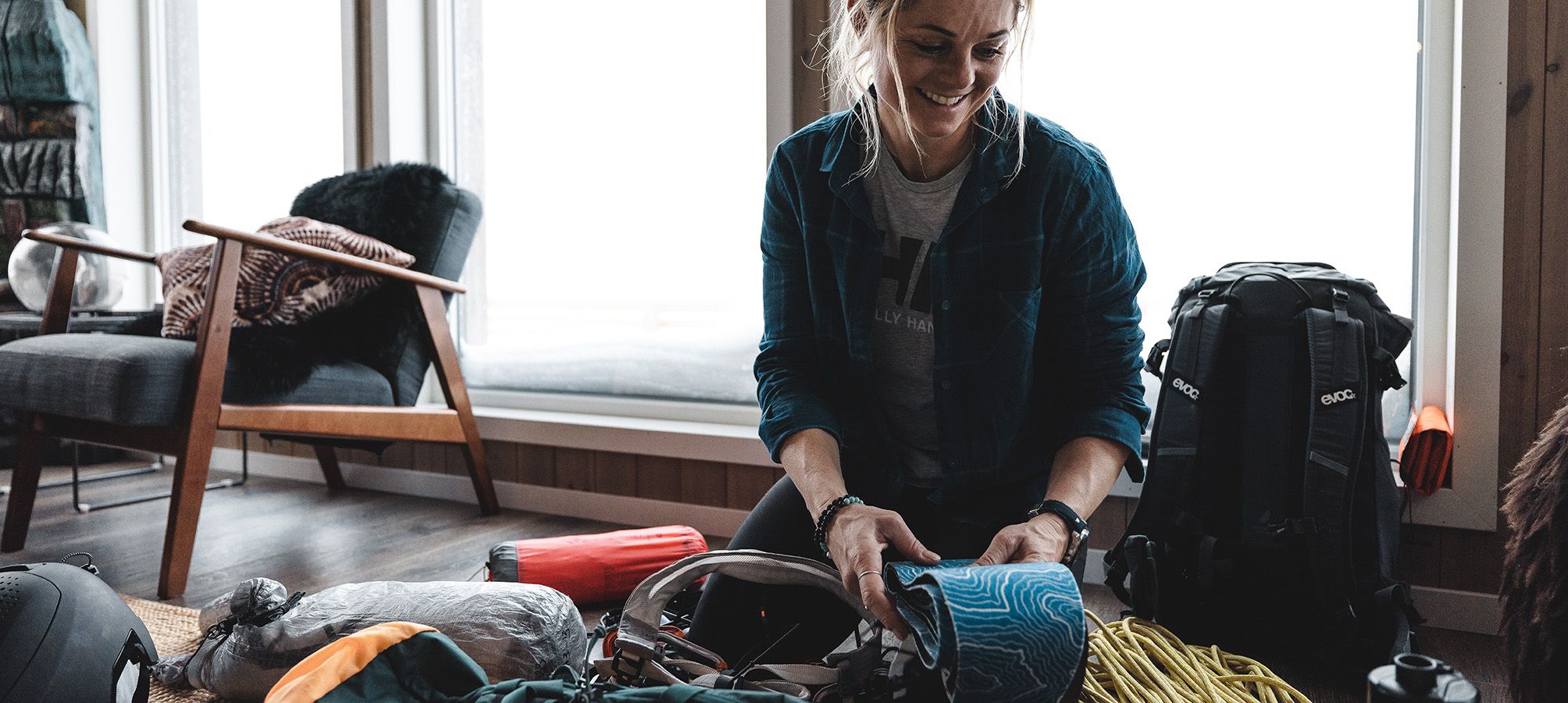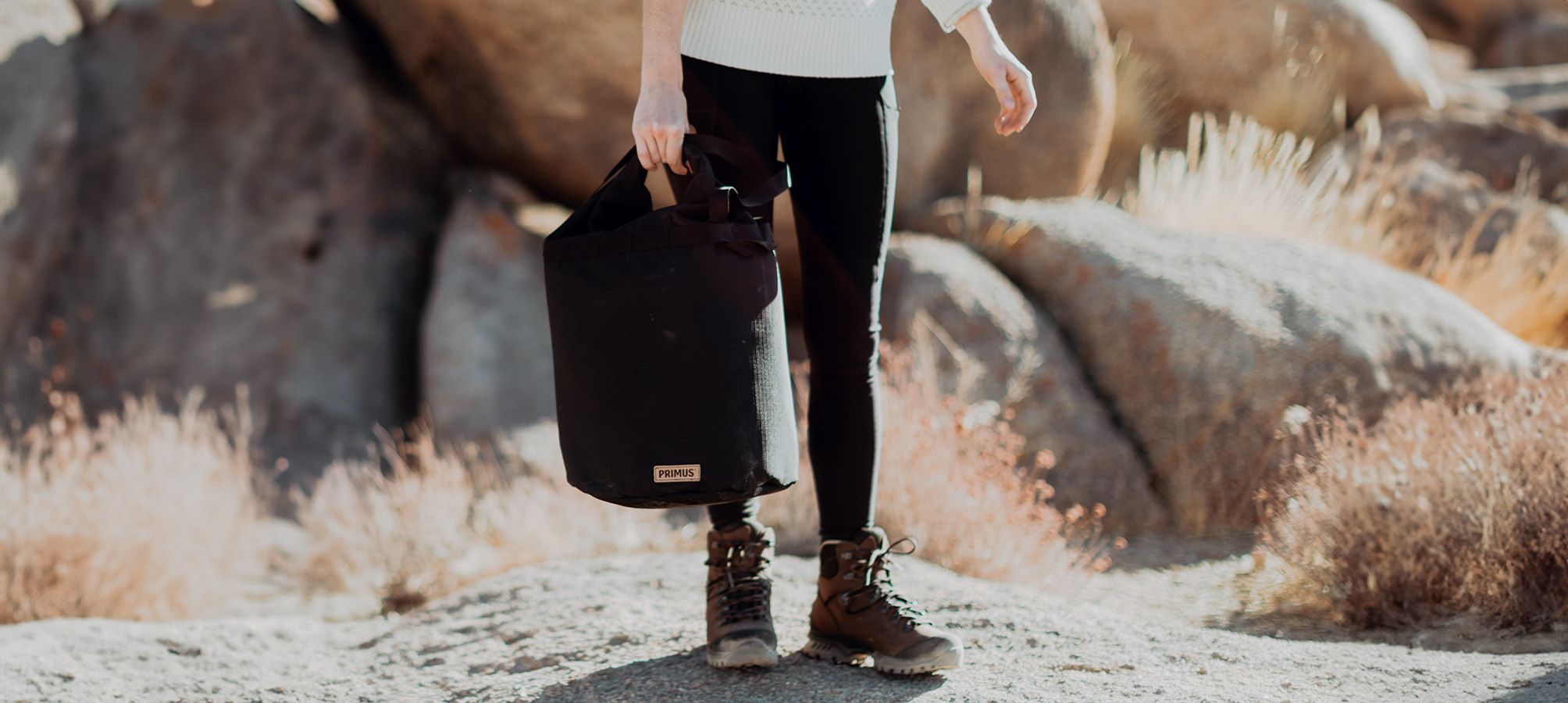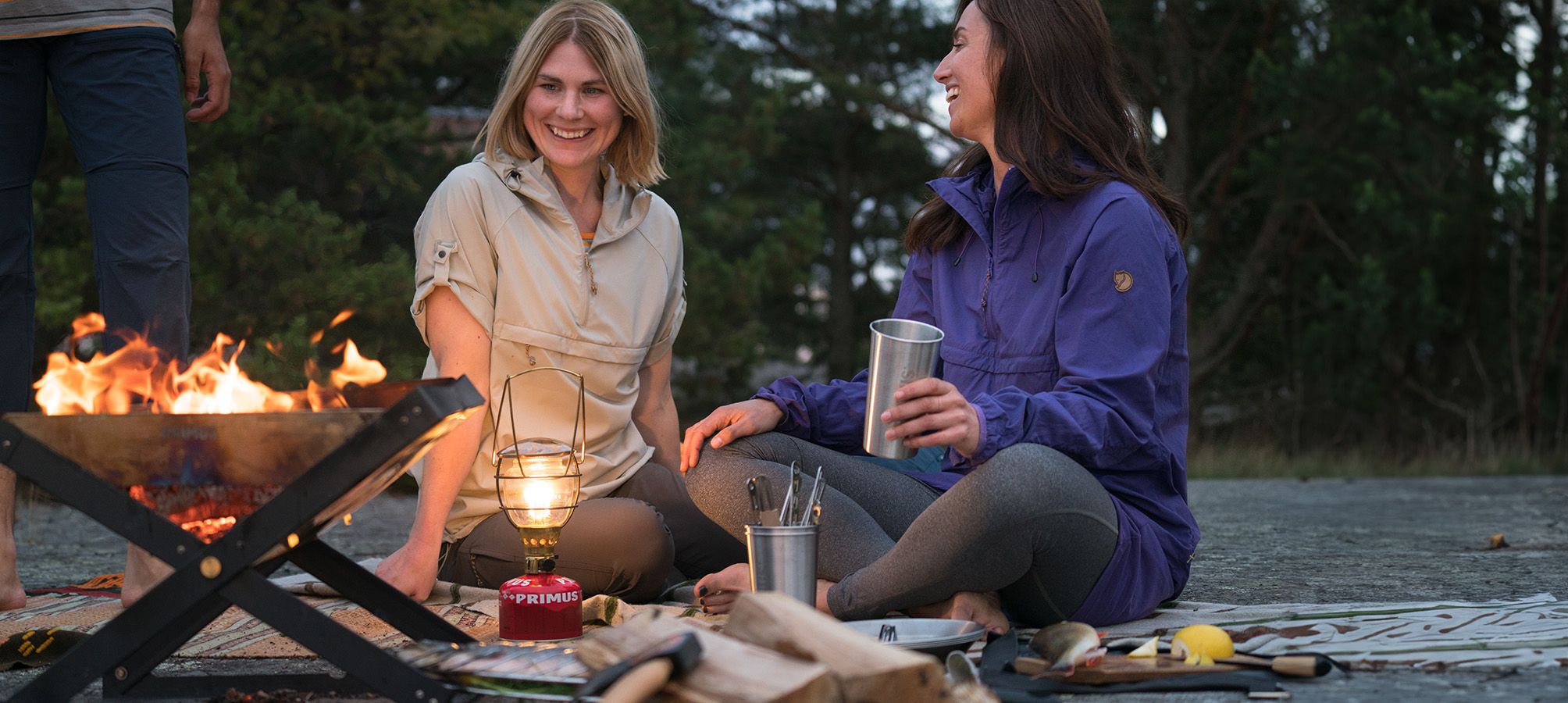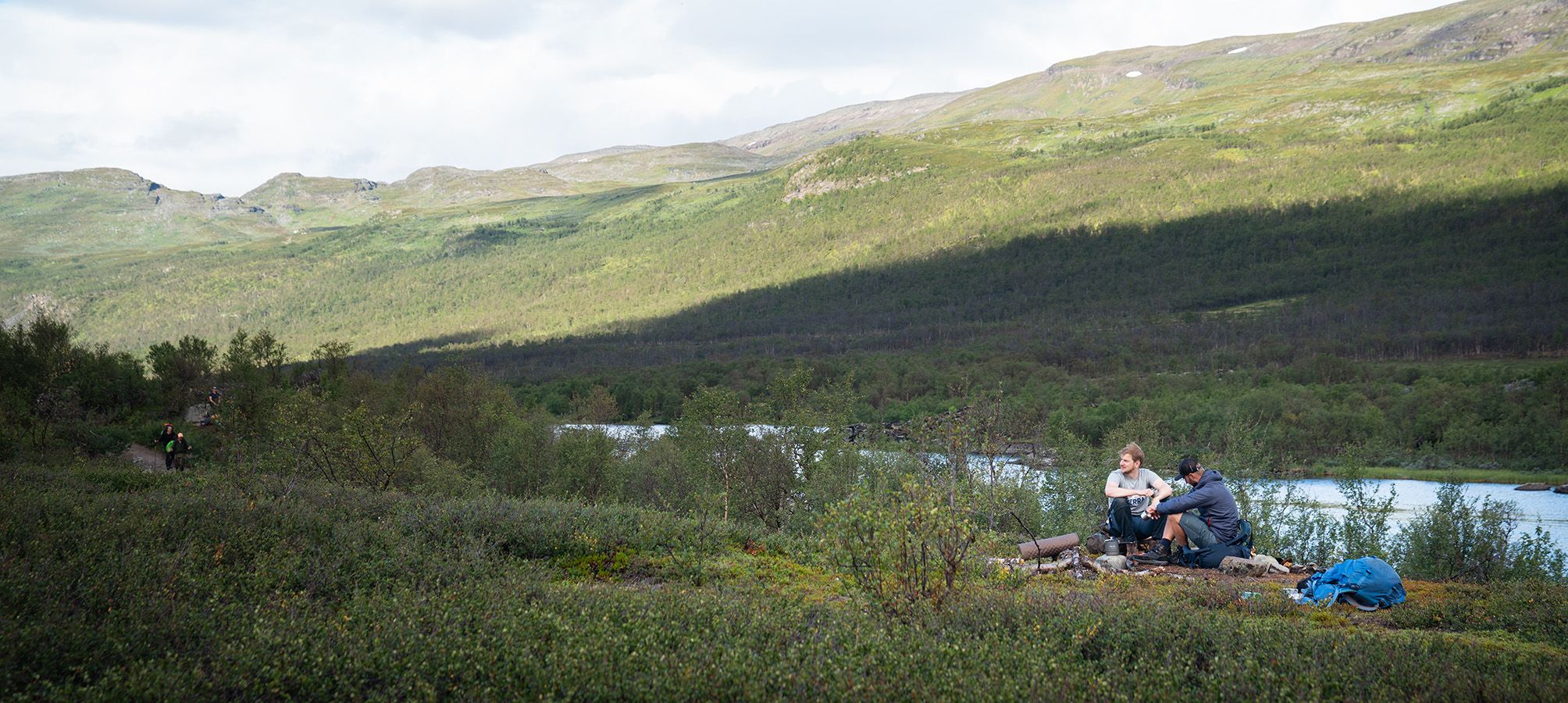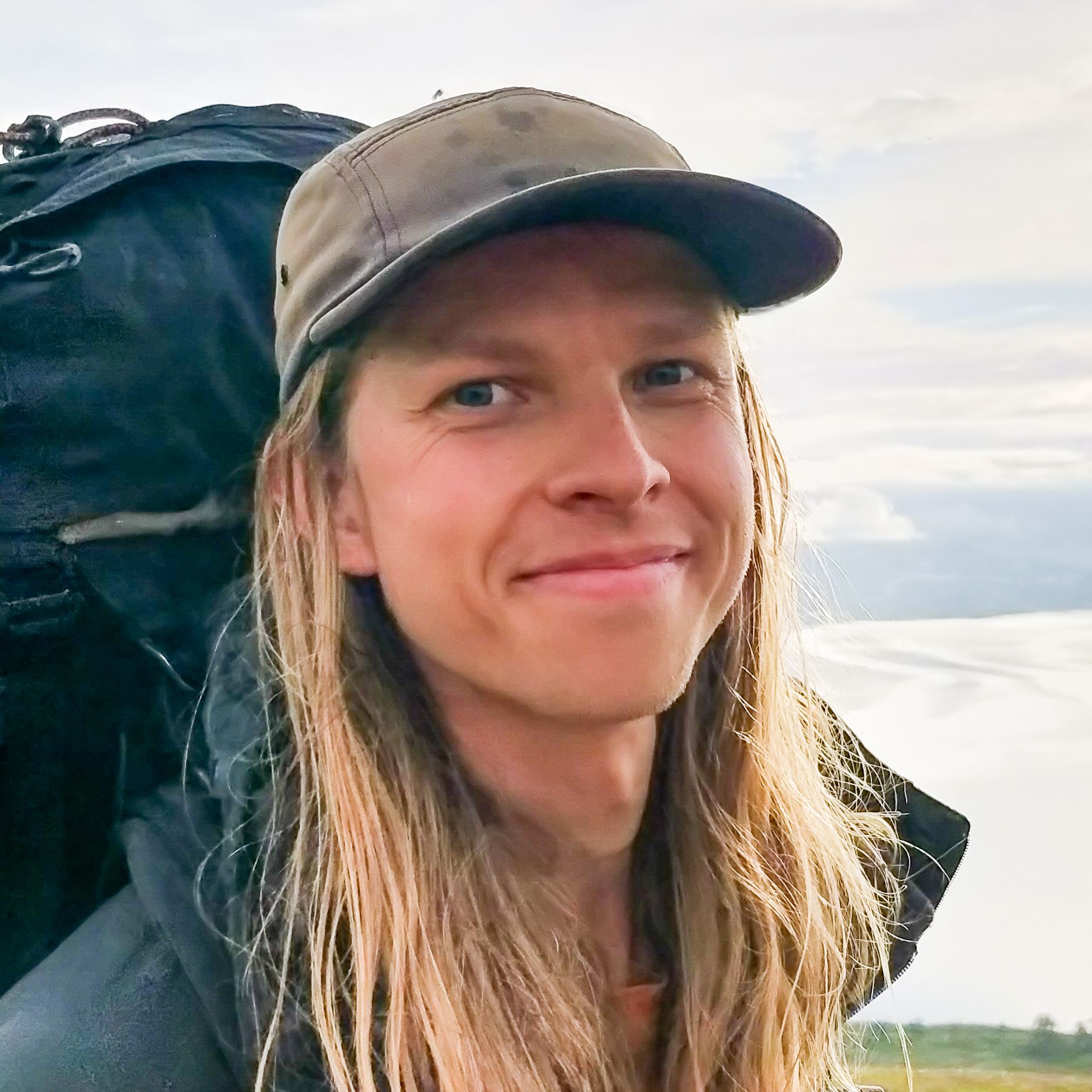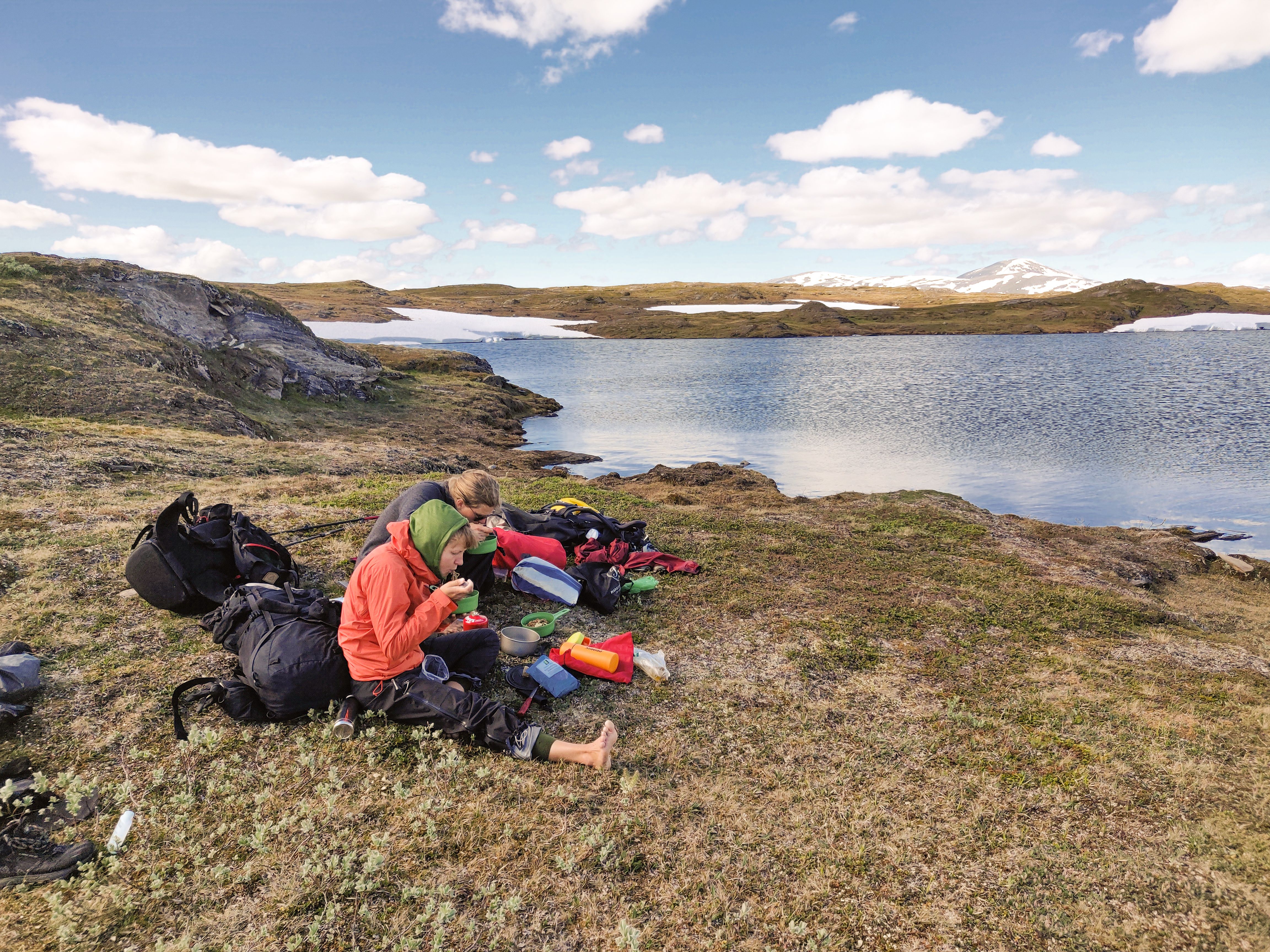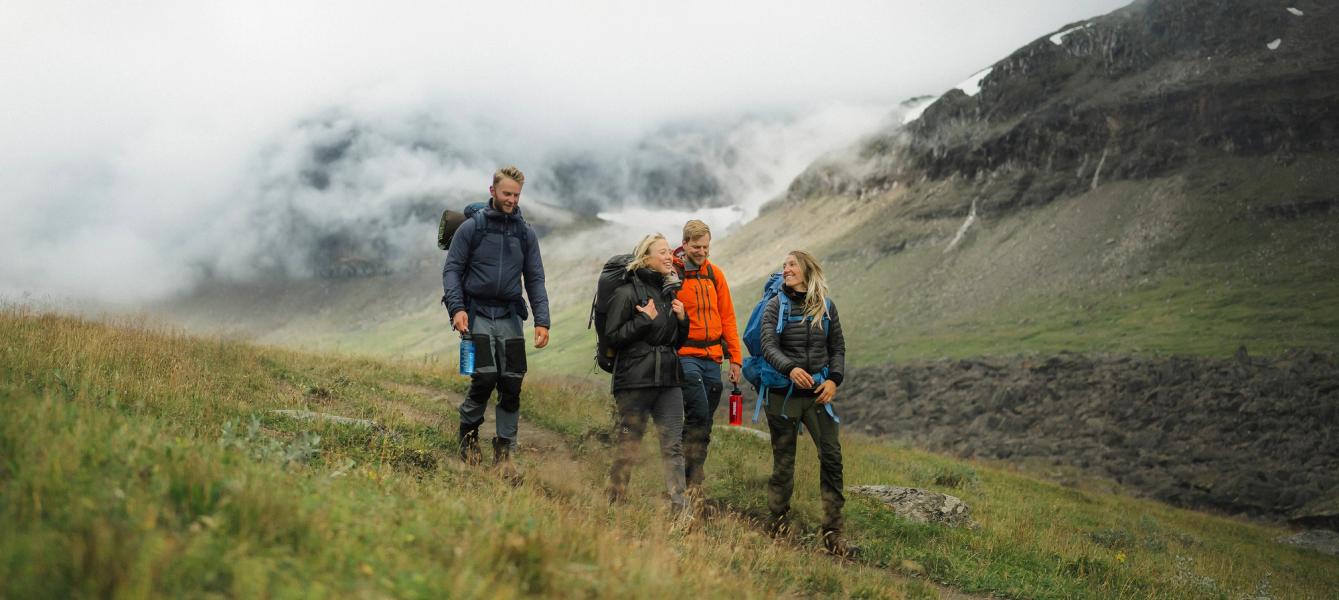
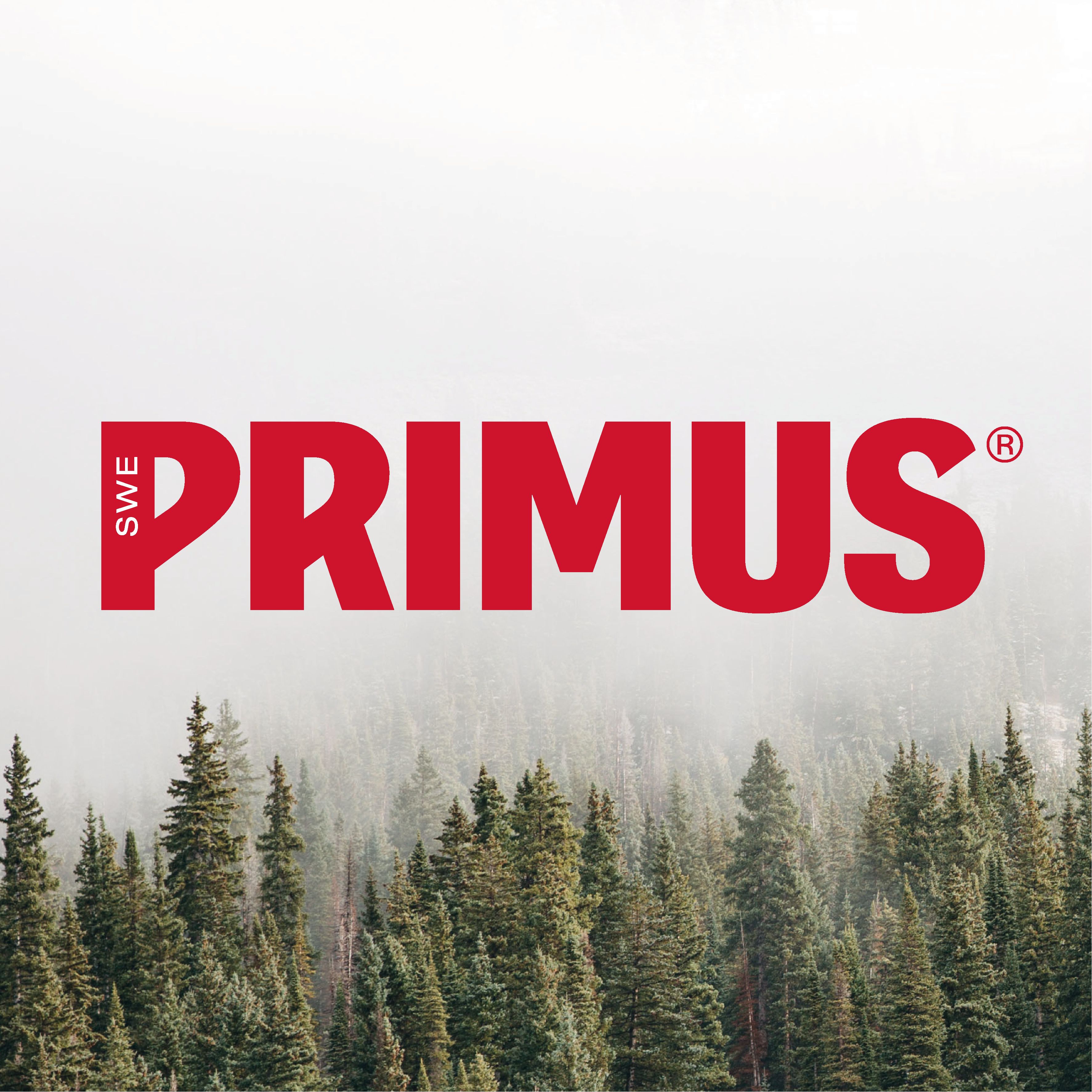
PRIMUS
PRINCIPLE 1: PLAN AHEAD & PREPARE
Poor planning (or no planning) can lead to situations that are less than enjoyable and can result in damage to natural resources. When you plan for your adventure outside, you will be safer, eat well, and be more prepared to take care of the place you chose as your basecamp.
HINT: When planning ahead in regard to cooking and food consider precooking some of your items and repackaging meals to minimize waste.
Repackaging Meals
No matter how you are enjoying your time outside, when you pre-plan your meals, snacks, and beverages that require minimum packaging and preparation time often lightens loads and decreases garbage. When you remove outer packaging or repackage food in reusable containers, it often reduces the amount of garbage your group must pack out or dispose of at the end of the trip, plus it normally reduces bulk.
Pre-cooking/prepping meals
When you do a bit of the cooking at home, you can reduce the cook time needed at camp, thus reducing the amount of fuel you need to carry. Warming up verses thoroughly cooking takes way less time on the stove and you need less gas.
Pot Situation
One-pot meals require minimal cooking utensils and eliminate the need for larger stoves or a campfire and limit the amount of cleaning you need to do. Remember, stoves have less of an impact than campfires.
PRINCIPLE 2: TRAVEL, CAMP, & COOK ON DURABLE SURFACES
Our hope when outdoors is to move through natural areas while avoiding damage to the land, foliage, or waterways. That is why it is best to travel on durable surfaces that include established trails, rock, gravel, and dry grasses or snow.
When setting up a camp we want to protect areas by camping at least 60 meters from lakes and streams and focus on the fact that good campsites are found, not made. Keep campsites small, you shouldn’t need to alter a site in order to camp there, and focus activity in areas where vegetation is absent.
The cooking areas at camp should be located on rock, sand, or gravel and if the camp kitchen is away from the tent area, consciously choose durable travel routes between the two so that connecting trails do not develop.
PRINCIPLE 3: PROPER WASTE DISPOSAL
It is crucial to anticipate the types of waste you will need to dispose of (including grey water) and know the proper techniques for disposing of each type of waste in the area you are visiting
First and foremost, make sure to pack it in, pack it out. When packing up check the campsite and surrounding areas for trash or spilled food. Pack out all trash, leftover food (including organic litter like orange peels or pistachio shells), and litter. Burning trash is never recommended.
With eating comes cleaning. When you wash dishes, carry water 60 meters away from streams or lakes (never use the water source as a sink) and use small amounts of biodegradable soap. Use hot water, elbow grease, and soap if necessary. Strain dirty dishwater with a fine mesh strainer before scattering it broadly. Do this well away from camp, especially if bears are a concern. Pack out the contents of the strainer along with any uneaten leftovers. Learn more about how to dispose of greywater here.
It is critical to wildlife that we pack out all kitchen waste, such as bacon grease and leftovers. When you plan meals (see PRINCIPLE 1) you can avoid generating messy, smelly garbage. Don’t count on a fire to dispose of it. Half-burned or buried garbage will still attract animals and make a site unattractive to other visitors.
PRINCIPLE 4: LEAVE WHAT YOU FIND
Should be easy, the items we find in nature should stay undisturbed in Nature. Each rock or wildflower has a role to play, either in the ecosystem or the story of the landscape. Leaving what we find in place helps to preserve both. Allow others a sense of discovery by leaving rocks, plants, archaeological artifacts, and other objects of interest as you find them.
When foraging for edible plants, be careful not to deplete the surviving vegetation or disturb rare or slow reproduction plants. All local guidance should be closely followed.
Properly located and legally constructed facilities, such as a single fire ring, should be left in place in many locations. Dismantling them will cause additional impact because they will be rebuilt with new rocks and thus impact a new area.
There are some things that you find that you shouldn’t leave behind. Make it a game and bring at least three pieces of trash you find and take it back for proper disposal.
PRINCIPLE 5: MINIMIZE THE IMPACT OF CAMPFIRES
This is a principle that is near and dear to our hearts. Campfires were once necessary for cooking and warmth, and are steeped in history and tradition, and may would never consider going camping without that evening tradition. Years of overuse and human caused wildfires have impacted our outdoor areas. Let’s try to minimize the impact of campfires by keeping some things in mind.
The best place to build a fire is within an existing fire ring in an established campsite. Choose wood over charcoal, make sure to keep the fire under control, keep it burning only for the time you are using, and allow the wood to burn completely to ash. When you are done with the fire, put it out with water, not dirt. Most importantly, make sure to FULLY extinguish any campfire you made (sounds easy but this could be tricky). Learn more here.
A few other options for building a Leave No Trace friendly campfire includes using a fire pane or building a mound fire. No matter how you build a campfire, know that campfires cause lasting impacts on the environment. Consider removing this impact all together by using a lightweight stove for cooking and enjoy a lantern for light.
PRINCIPLE 6: RESPECT WILDLIFE
Wild animals should stay wild, and we should do everything possible to make sure to minimize our impact on the animals in the area. It’s important to make sure to pack away food (human food is unhealthy for wildlife) and regular access to it can cause animals to no longer seek their natural food sources. Access to brought food can also cause wildlife to lose their fear of humans and be attracted to us or unsafe areas like busy roadways.
No matter where you visit, make sure to check with local land managers to see what type of food storage is required. Putting food into a plastic storage tub may be enough if things like birds, squirrels, and bugs are all we must worry about. However, in places like bear country, storing food, trash, and anything with a scent, such as toothpaste or deodorant, in a bear canister, locker, or locked vehicle is essential.
PRINCIPLE 7: BE CONSIDERATE OF OTHERS
We share natural spaces with other outdoor enthusiasts and people who may live and work or subsist in parks and protected areas. There is not enough space for everyone to have exclusive use of the outdoors so be kind and considerate to others in order to build more inclusive spaces that allows everyone an opportunity to connect to nature.
February 07 2022

